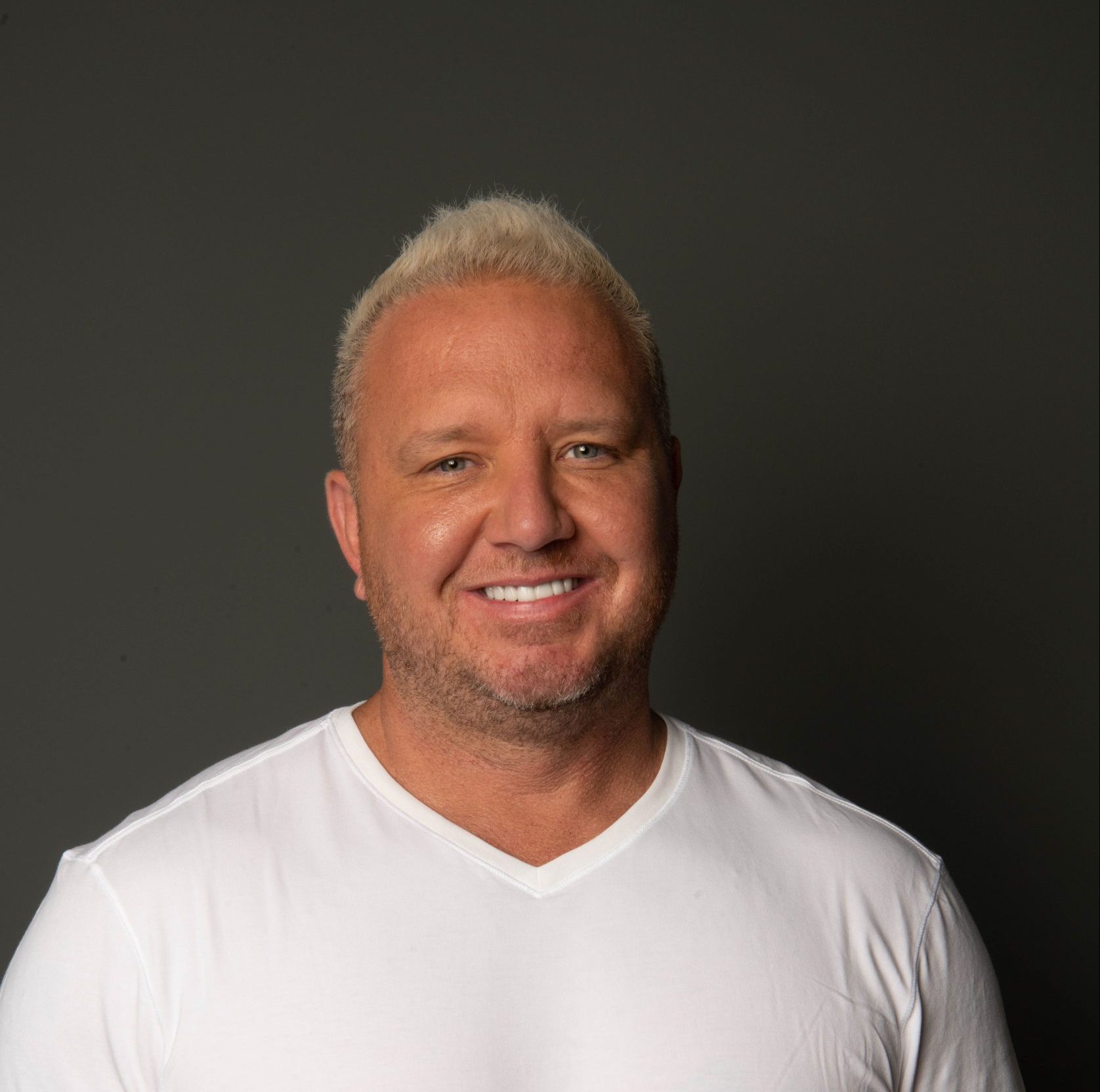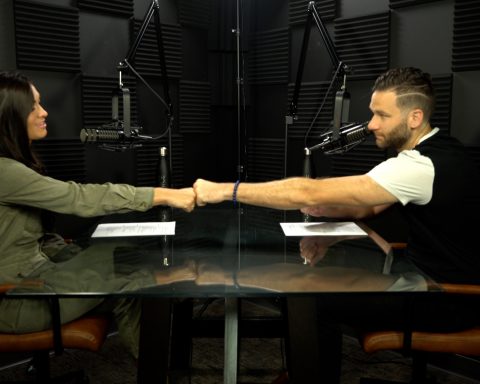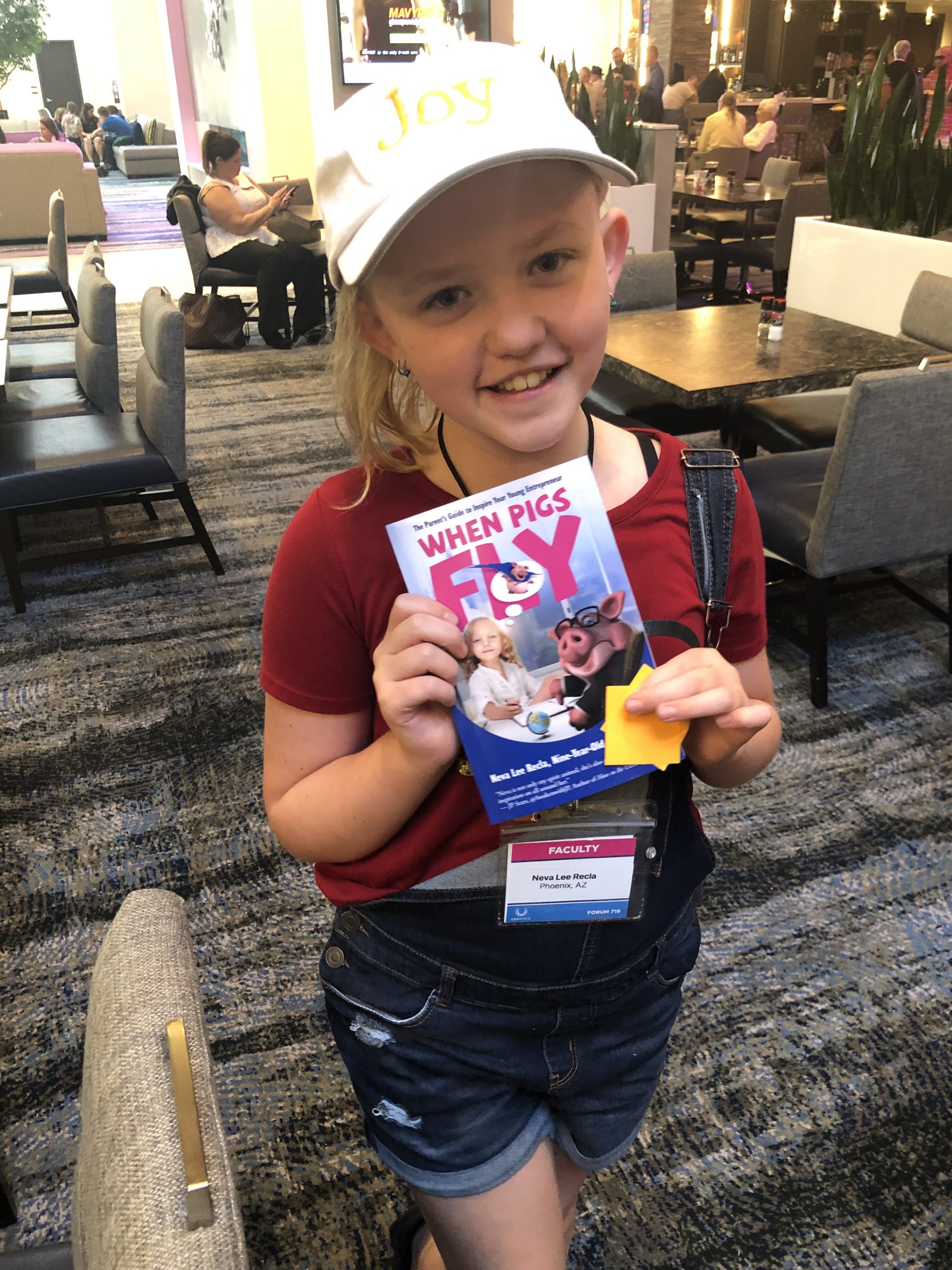Jayson Waller is a high-school-dropout-turned-serial-entrepreneur who defied ALL the odds.
As CEO of POWERHOME Solar, one of the fastest-growing private companies in the USA, Jayson operates his business from a place of “giving back.”
He is also driven to share his core message with as many people as possible: never give up. His vehicles for spreading that message? Instagram and YouTube, through which he reaches hundreds of thousands of followers and subscribers and has garnered millions of listens and views, and his podcast, True Underdog—a Top 5 Entrepreneurship podcast on Apple.
Like most journeys to success, Jayson’s was not without obstacles. It was his conscious decision to always take the leap, even if he can’t see the net, that transformed his life.
He recalls the very moment he learned that lesson… he was fourteen, sitting in the living room of his Arizona home, listening in on a conversation between his father and his father’s then business partner.
His father had dropped out of high school and married his mother when he was just 18 and she was just 16. Two years later, they had Jayson.
A “blue-collar man who worked his tail off,” Jayson’s dad was working for AT&T when he received a transfer notice. His buddy, who owned a video store (pre-Blockbuster), came to the house and sat with his father in the living room. There, he presented an offer: If Jayson’s dad would turn down the transfer, he’d partner with him and provide the capital needed to open a bakery next door to the video store.
His dad chose to play it safe—to forego that opportunity in favor of the less-risky route: moving to Concord, North Carolina with AT&T.
“Because of fear, my dad chose not to play to win,” Jayson said. “He played to not lose. He was playing safe, and that’s okay. But I saw that, and I think even then, it had an impact.”
The young family moved into a double-wide trailer in their new city, similar to the homes they were all used to—they had lived in a trailer park in Arizona, and Jayson’s mom had grown up in the “backwoods” of North Carolina in one. For them, it was the only lifestyle they knew.
But when kids at school noticed that Jayson’s Tommy Hilfiger shirt was a fake, they started making fun of him, and from there, the judgments came: “Oh, you live in Southbrook… in the trailer park.”
“In Arizona,” Jayson said, “no one was judgmental about where you lived or how much money you had. But people in NC cared about things like what kind of car I drove… which at the time was a $300, multicolored, ‘84 Dodge Lancer with insulation falling out of the top.”
For a kid who used that car to help out his family by delivering papers with his dad at night—a son who watched his dad struggle all his life—this was culture shock, and unfortunately, it led to Jayson’s eventual expulsion from school after his struggle to fit in resulted in several altercations and fist fights.
“There was still a lot of racism where we were, too. White people didn’t like me because I was a ‘redneck.’ Black people didn’t like me because I was White. I didn’t have friends. I ended up going to five different high schools, and I still didn’t finish. That was hard on my parents, because they never did, either.”
Despite his parents pressuring him to “finish school, go to college, and get a ‘real’ job,” Jayson knew it was not his path. He ended up becoming a teenage dad, and like his father, was motivated to work to provide. That motivation was ignited by his wife’s family, who also judged Jayson for where he lived. Their comments hurt his wife, inspiring a “sick motivation” in Jayson to do whatever he had to in order to be in a financial position to one day handle all their expenses.
“Right, wrong, or indifferent, it became a drive,” Jayson shared. 
It was that drive, combined with Jayson’s natural gift to “look deep” and stay “twelve steps ahead,” that compelled him to take his first major leap in the world of business: he lied on his resumé to obtain a bank sales position that required a college degree. Just 17 at the time, Jayson claimed to be 22 with a two-year degree from UNC Charlotte. Fake ID in hand, he was interviewed, and after passing the required test, hired.
“So we’re two-and-a-half weeks in to a three-week training, and I’m a natural on the phone. I was beating everybody on the floor. Then the HR director comes and taps me on the shoulder. She’s like, ‘Hey, Jason, we can’t find your associate degree at UNC Charlotte.’
“Now, you have to understand, I was scared. I had this opportunity in front of me, and I felt like I wasn’t doing anything wrong. It was just my credentials, my background. And my background had always haunted me. ‘You live in a trailer park.’ ‘Oh, you didn’t finish high school.’ ‘You had a kid at 18 years old.’ All these things, right? But I had a shot, and I didn’t want to miss it. So I told them they must have looked under ‘Jayson,’ but my real name was ‘William Jayson.’ Next thing you know, I’m done with the training, and they’re awarding me ‘Top Salesperson.’ My manager got ‘Top Manager.’”
One week later, though, Jayson’s manager told him they needed to talk.
“He says, ‘HR came to me. They’re having issues with your degree. Be honest with me. Do you have a college degree?’ I said, ‘No.’ He said, ‘Why did you say you did?’ I said, ‘You guys wouldn’t have hired me if I hadn’t. And if you hadn’t hired me, you wouldn’t be the manager of the month, and I wouldn’t be the top salesperson of the month.’ And he goes, ‘Just don’t do anything like that again.’”
Month after month for eight months, Jayson remained the number one rep. That experience provided him with the credentials he needed, and after he and his wife had their second child, he was able to secure a job at Verizon Wireless while driving limos at night to make ends meet.
Suddenly, Jayson was in the world of suits and ties, quickly reaching the status of “Number One Business Account Manager in the Southeast.”
“I sold the largest (at the time) Blackberry enterprise servers to companies like Charlotte Pipe, Foundry, and First Charter National Bank. I was successful in it because I was so persistent, and that gave me confidence. I could enter a boardroom with professionals who were running big companies and get them to change their business model,” Jayson reflected.
As a “sponge” who perpetually sought out learning and self-improvement, it took only a few years into Jayson’s selling career before he wanted more.
He turned to entrepreneurship in 2004, cashing out some of his 401K to open a security company. Jayson, who knew nothing about electrical, took classes and garnered a low-voltage electrical license in just three months. Armed with a white tile shower board from Lowe’s and a black marker for scheduling, Jayson opened his company out of his bedroom and began distributing flyers.
“Calls were coming in while I was still working at Verizon, and I just handled it all—from booking to running appointments and scheduling for the friend I had trained to be an installer. About four or five months later, it took off.”
For an entire year, Jayson worked on building his security company. He took no paycheck, continuing to survive on the money he made from his Verizon job. Like his father, he worked tirelessly.
“I worked at Verizon from eight to four, and then from four to 10, I ran my business AND did the selling. The money I made went straight out the window to pay for the installer, marketing, and re-investing. Having my day job disciplined me to reinvest my profits. Most entrepreneurs go in thinking they’re going to be rich. They pay themselves the most. But really, you have to pay yourself last. You pay your people, then your vendors, and then yourself.”
Fourteen months after starting his business, Jayson was able to take another leap, leaving Verizon to run it full time. In 2012, the company peaked at $13M in sales. He invested in another alarm company, morphing it, and then sold it. He took the $1.5M from that sale and opened a brand-new business following a personal passion: to empower people to control their energy costs. This mission evolved during his time in Lake Norman, North Carolina, where he witnessed people become sick and develop cancer after living in homes built on coal ash—aka arsenic. On top of that, the cost of power continuously increased.
Thus, POWERHOME Solar was born. And with a house on the lake and a new passion to focus on, Jayson was “living the good life.”
For the next two years, however, and true to prior form, he didn’t take a paycheck. The $1.5M went right back into the company. In 2015, while revenue exceeded $3M, they lost more than $1M. They entered 2016 “in the red.” He had real concern as to how he could continue along this path.
“I remember going to Disney over the holidays in 2015. I was in tears, explaining to my wife how much I was struggling. Whatever I sold took two months to translate into a paycheck, and I had so much overhead. I kept dumping all our money back in, and I didn’t know what to do. She’s like, ‘You just need to pray about it.’”
So, Jayson prayed. The result? A shift in mindset. Jayson refused to go down without a fight. He released nearly 80 percent of his staff and began “doing it all” himself. He committed to constantly bring in “new blood—team members who are hungry to grow quickly.”
“I bet on myself and went all in,” he said.
Jayson sold his home and invested that money into his company, too. By the end of 2016, they generated approximately $14M… and still lost money.
It was thanks to a strategic (and risky) move to switch to American-made panels—a better-made product with a better warranty—and revamping their marketing strategy that the company doubled in size practically overnight. Profits flowed soon thereafter.
In 2016 and 2017, they grossed nearly $40M in revenue. In 2018, $105M; in 2019, $185M; and in 2020, they finished the year at $330M.
Despite Power Home Solar’s substantial growth, Jayson has continued to pay himself the same exact salary year after year choosing, once again, to reinvest the profits into growth-oriented company initiatives.
Fully expecting the company to continue its stratospheric rise, Jayson’s plans are squarely focused on rewarding his employees rather than himself.
“When the Coronavirus hit, we were faced with a really tough decision. In the end, the executive team forfeited our paychecks so we could keep from shutting down. Now, we’re forecasting nearly $1B in revenue this year, and it truly is all about our employees. I want to negotiate a plan for life-changing opportunities for them, whether it be through gainshare or IPO stock. It doesn’t matter if I make $50M or $500M. I can’t spend it all anyway. But if I can change all of our employees’ lives, somehow, some way, that’s what I want to do. I want to give back to those who are helping to build the company.”
As his company flourishes and revenues increase, so does his drive and passion to motivate and inspire others. In fact, his favorite part of the job nowadays is delivering motivational speeches formulated from the company’s motto: BAM—build a movement, one panel, one customer, one employee, one vision, and one mission at a time.
“I want to be able to offer that motivation through podcasting and speaking. That’s where I envision my ‘second life,’ the one in which I reinvent myself, going after this current chapter closes. I want to inspire people through stories.”
Last year, Jayson was “humbled and honored” to win the Entrepreneur of the Year Award. In delivering his acceptance speech, Jayson says he “lit the room on fire.” The judges swarmed him afterward, insisting he write a book. When Jayson replied with “I’ve never even read a book,” they suggested podcasting.
Jayson launched True Underdog “to share motivational tips and inspiring stories from his life experiences and that of his high-profile guests to help others better themselves.”
“I want to relate to people through the stories I tell. People quit too early in everything they do. They get discouraged and become short-sighted. They don’t see far or deeply enough. My hope is to inspire them to keep going—to not quit. There’s no elevator or shortcut to success. Take the stairs every little step of the way. When you fail, keep trying. As my friend Steve Olsher says, ‘Failure is just success with an unintended ending.’”
Fortunately, Jayson’s ‘failures’ have led him to this exact moment in time—inspiring others to ‘Own Their Power.’











